Find Your Perfect Wood Product
If you find a product you like, reach out to us for more details and assistance.
Black Limba
Limba is from West Africa and is also commonly referred to as Korina. Black Limba is the same species as White Limba, but is hand selected for character including dark streaks and color variation. White Limba is a more consistent color without the dark streaking. This species has excellent tonal properties and is light weight, so it is popular for solid body guitars. It can also be turned or used for furniture.
Length: 6′-9′
Thickness:
4/4 $9.75/Bd ft
8/4 $9.75/Bd ft
- Common Name(s): Black Limba
- Scientific Name: Terminalia superba
- Distribution: Tropical Western Africa
- Tree Size: 130-150 ft (40-45 m) tall, 3-5 ft (1-1.5 m) trunk diameter
- Average Dried Weight: 35 lbs/ft³ (560 kg/m³)
- Janka Hardness: 670 lbf (2,980 N)
- Crushing Strength: 6,920 lbf/in² (47.7 MPa)
Heartwood: Light to medium brown, sometimes with gray to black streaks.
Sapwood: Pale yellow to nearly white, not always sharply demarcated from the heartwood.
Grain: Generally straight, but can be wavy or irregular.
Texture: Medium to coarse texture with a good natural luster.
Rated as durable and resistant to termite attack.
Black Limba is generally easy to work with both hand and machine tools, though pieces with interlocked grain can cause tearout during planing. It turns, glues, and finishes well, and it also responds well to steam bending.
- Fine furniture
- Veneer
- Turned objects
- Musical instruments
- Decorative pieces
- Specialty wood items

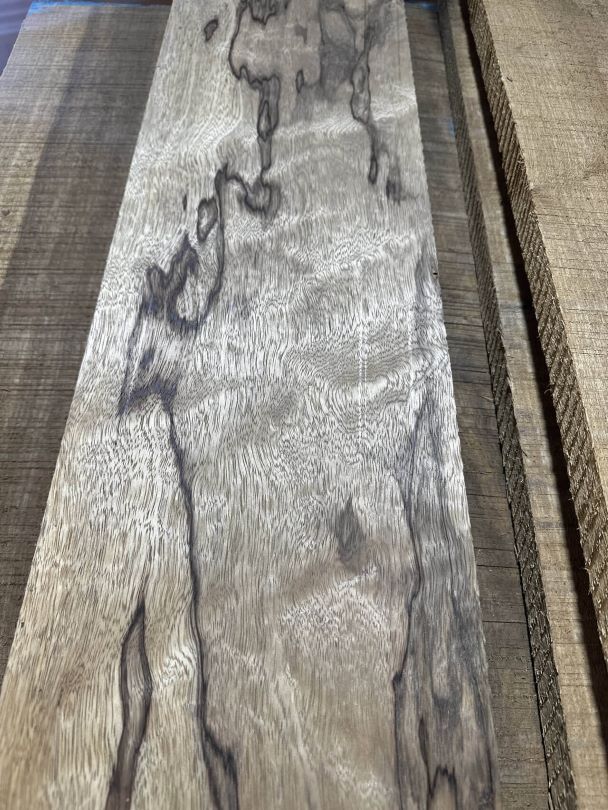
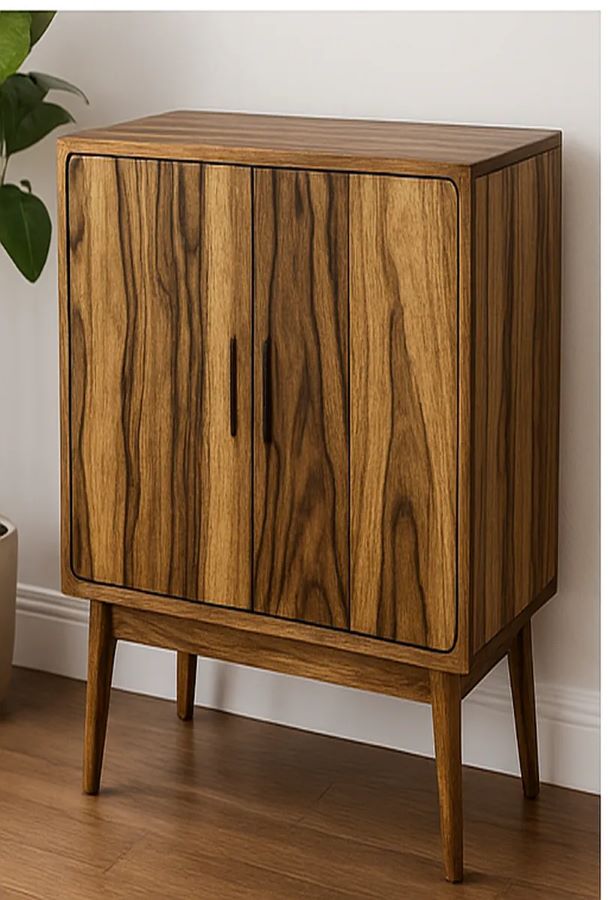
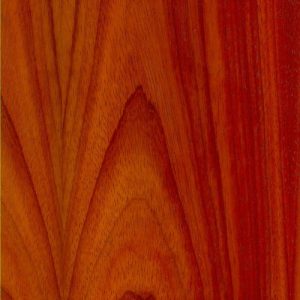
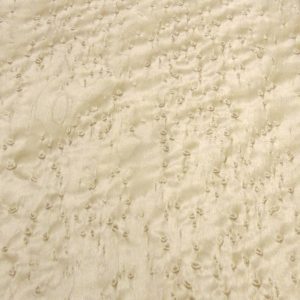
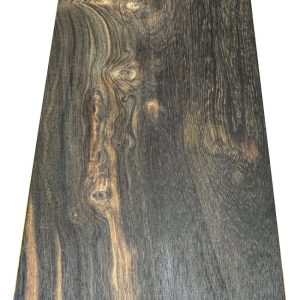
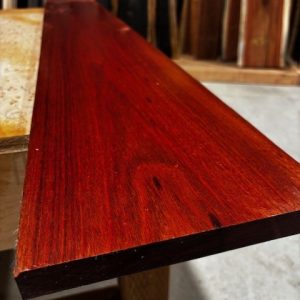
Black Limba is prized for its striking appearance and workability. The wood’s natural luster and striking patterns make it a favorite for decorative applications. It is also known as Korina and is frequently used in the manufacture of electric guitars.
Note: Black Limba is not listed in the CITES Appendices or on the IUCN Red List of Threatened Species, which means it is not currently considered at risk.